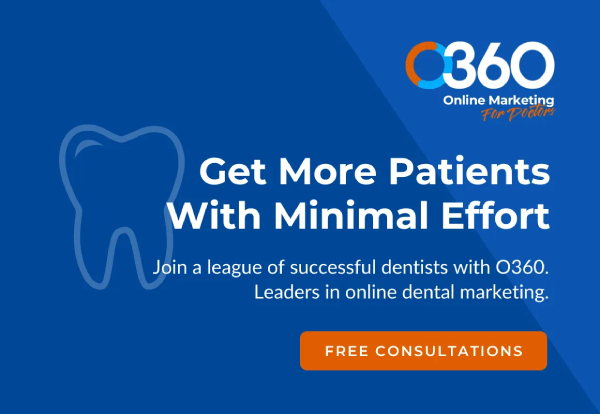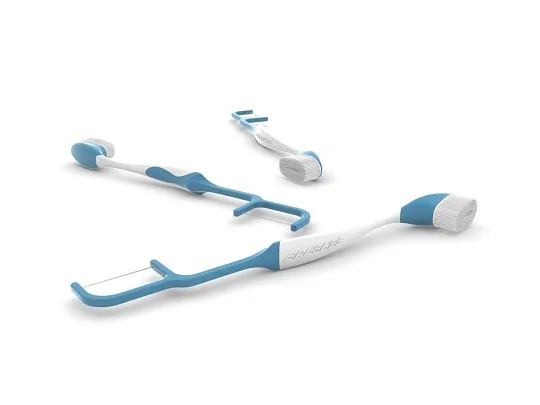On-Site SEO
On-site SEO is a necessary part of any website’s success, and technical SEO is the foundation of it all. If you want to increase your ranking on search engines, you need to make sure your website’s code, tags, and other elements are optimized for search engines. It’s not always the most exciting task, but it is essential for good SEO. Start by making sure your website is using the latest HTML and CSS standards. Then, you’ll want to make sure your title tags and meta descriptions are as optimized as possible. This will help search engine crawlers understand your content better, allowing them to rank it higher. Finally, you’ll want to optimize your website’s speed. This means compressing images, minifying code, and leveraging browser caching. Once you have all these elements in place, you’ll be well on your way to having a website that is optimized for search engines. It might seem like a lot of work, but trust us – it’s worth it!
Organic link buildup
Organic link buildup in SEO is one of the best ways to give your site a competitive edge in search engine rankings. It involves building quality, relevant links to your website from other authoritative sources. These links act as a vote of confidence and trust, which can help boost your rankings. The best way to do this is to focus on creating content that is valuable and interesting to your target audience. This content should then be optimized with relevant keywords and shared on social media and other websites. You can also create guest posts on other websites and include a link back to your website. This will not only help build organic links but also increase your website’s visibility and traffic. You can even reach out to other websites and ask for a link exchange which can help boost your rankings. There are many ways to do organic link buildup in SEO, and with the right approach, it can be a very effective way to increase your site’s rankings.
Link buildup by paid links
Pain links are a popular way to boost SEO, but it’s important to understand the pros and cons before investing in them. Paid links, for example, are a great way to quickly increase your rankings. But be careful – Google can penalize you for buying links, so it’s important to make sure you choose trustworthy sources. Guest posts are another popular option. These are posts written by an outside contributor on another website, and they can be a great way to get more eyes on your content. Just make sure the guest post content is relevant and of high quality. Finally, directory links are a good way to get noticed on search engines. But be aware that some of these directories can be low quality and could end up hurting your rankings. In the end, it’s important to do your research and make sure you’re investing in the right type of links. With the right approach, pain links can be a great way to improve your SEO.
Social mentions and links
Social mentions can be a powerful tool for dentists looking to improve their SEO. A social mention is when someone talks about your business or website on a social media platform, such as Twitter, Facebook, or Instagram. It’s essentially a shout-out for your website that can boost its visibility and help it rank higher in search engine results. Social mentions also increase the chances of your website being seen by potential customers, as the mention can be seen by the person’s followers. Furthermore, social mentions often come with a link back to your site, which can be indexed by search engines and give your website a higher ranking. So if you’re a dentist looking to boost your SEO, social mentions can be a great way to do it. Make sure to keep an eye out for any opportunities to get mentioned on social media and take advantage of them!
SEO Tracking and Analysis
Tracking your SEO results is essential to ensure your website is performing well. With the right analytics, you can easily monitor your SEO results and tweak your website to improve the overall performance. The best way to track SEO results is to use a tool like Google Analytics. This will give you detailed insights into your website’s performance, helping you identify any areas that need improvement. You can also use a tool like Search Console to track your website’s performance in search engine results pages. This will help you make sure your website is being seen by the right people. Additionally, it’s important to regularly update your website with new content and make sure your existing content is optimized for search engines. With the right keywords and DDS (Dynamic Digital Solutions), you can easily improve your website’s SEO. Tracking your SEO results is the best way to make sure you’re keeping up with the latest changes and making sure your website is performing as well as it should be.
What are the most common mistakes in website SEO for dentists?

Many dentists underestimate the importance of optimizing their websites for search engine optimization (SEO). Without proper SEO, your website may not be seen by potential patients, leading to a loss of business. SEO is a complicated process, and there are many mistakes that can be made when attempting to optimize your website for search engines. The most common mistakes dentists make when it comes to SEO for their websites are not optimizing for the right keywords, not optimizing for mobile devices, not optimizing for local SEO, not optimizing title tags, meta tags and descriptions, and not monitoring the competition. Understanding and avoiding these common SEO mistakes can help you ensure your website is properly optimized to be seen by potential patients.
What is SEO?
SEO is the process of improving the visibility of a website or a web page in a search engine’s organic (non-paid) search results. This visibility is generally measured by the number of organic search clicks that the page receives. The goal of SEO is to increase the number of people who visit a website by bringing it higher in the search engine result pages (SERPs) through a process called “organic search engine optimization” (organic SEO). In short, SEO is the process of improving your website’s rank in search engine results by increasing the number of visitors to your website. The higher your rank, the more visitors you will receive.
Common SEO Mistakes for Dentists
- Not optimizing for the right keywords – A mistake that many dentists make is not choosing the right keywords to optimize for. In order for a website to rank on the first page of Google’s results, it must have the right keywords. If you choose keywords that are too generic, like “dentist” or “dental care”, you will likely have a hard time ranking for those terms since many other dentists may be targeting the same keywords. There are many free SEO tools that can help you determine what keywords to optimize for. You should try to choose keywords that are highly searched for, but not overly competitive. If you have trouble choosing keywords or want some advice, you can also outsource this process to a professional SEO company.
- Not optimizing for mobile devices – Another common mistake that dentists make is not optimizing for mobile devices. This is especially important to consider because many people find dental care services through Google when they are on the go, searching for nearby dentists. If your website does not load properly on a mobile device, it will not show up for the many people who are searching for dental services on their phones. You can optimize your website for mobile devices by making sure that text is legible, navigation is easy, and images are not too large. You can also use a service like Squarespace, which automatically optimizes your website for all devices.
- Not optimizing for local SEO – Local SEO is the process of increasing your website’s rank for keywords that pertain to your location. For example, if you are a dentist in New York City, then “dentist in New York City” would be a local keyword that would help you rank higher in the search results. Many dentists overlook local SEO as an important part of their SEO strategy, but it can be a very effective way of bringing in new patients. You can optimize for local keywords by including your address and city in your website’s metadata, including your city and state in your website’s title tags and meta descriptions, and including your city and state in your social media profiles.
- Not optimizing title tags, meta tags and descriptions – Another common mistake that dentists make is not optimizing their title tags, meta tags, and descriptions. These are areas of your website that you have control over that can greatly affect your SEO. Your title tags and meta descriptions are what show up in search engine results when someone clicks on your website’s link. Your title tags should be around 55-60 characters and include your target keywords. Your meta descriptions should be around 160 characters and describe your website’s content. Including keywords in these areas can help Google know what your website is about and rank you higher for those terms.
- Not monitoring the competition – Another mistake that many dentists make is not monitoring their competition. You can see what keywords your competitors are targeting and what their websites look like by using free SEO tools. If a competitor has a better website than you, then you need to know what they are doing differently, so you can improve your website. You can also use these tools to figure out what your website’s rank is. Knowing what your competitors are doing and what keywords they are targeting can help you create a better website that ranks higher in search engines.
Tips for avoiding these common SEO mistakes
Tools for monitoring SEO
Benefits of SEO for dentists
One of the biggest benefits of proper SEO is that you will be more likely to be seen by patients searching for dental services in your area. If your website is not optimized for SEO, then it is unlikely that patients will ever see it, leading to a loss of potential clients. Having a properly optimized website may also help you receive more referrals from other dentists who see your website and recommend yours as a result. Finally, optimizing your website for SEO may save you money in the long run. Since your website will likely get more traffic, you will not have to spend as much on advertisements to bring in new patients.
Conclusion
All of these mistakes can be avoided by following a basic SEO checklist when creating or updating your website. You should choose relevant keywords based on the demographics of your area, create useful, quality content that relates to those keywords, use those keywords in your website’s title tags, meta tags, and descriptions, and finally, make sure that your website loads correctly on all devices. Improving your website’s SEO can help you receive more visitors, which may result in more patients and even more referrals.



